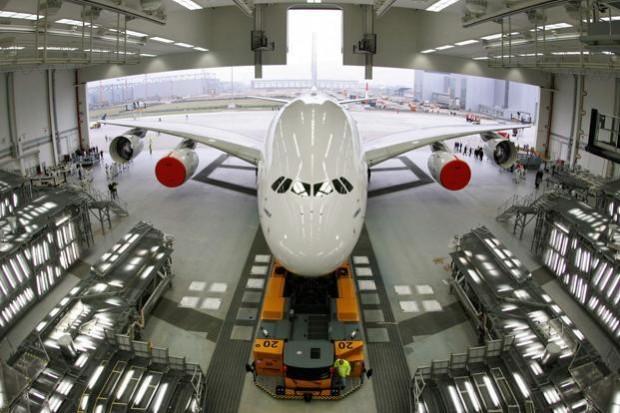
India's civil aviation market is looking at gargantuan growth in the next few years, but the country's record in building planes has been tardy.
Unlike China, which already has an airliner almost ready to compete with the world's top aircraft makers such as Airbus and Boeing, India imports most of its civil aircraft requirements.
"India and China both have very large civil aviation markets, however, China is still building its own platform but in India we are not seeing that happening on a big scale. So India continues to remain a buyer market when it comes to civil aerospace," said Rahul Gangal, Partner (Aerospace and Defence) at Roland Berger.
India's aviation market is expected to surpass that of China's by crossing a billion passenger trips per year in the next 10 to 15 years, a top government official said last year but there's little done in terms of setting up indigenous manufacturing units to meet the burgeoning demand.
On the other hand, China's investment in civilian and defence aircraft manufacturing is enormous.
China has built its capabilities through creation of a state-controlled entity - Commercial Aircraft Corporation of China (COMAC). COMAC also partnered with various aerospace majors like GE, Safran, Honeywell, Rockwell Collins, United Aircraft Corp that help build aircraft in the shortest possible time.
COMAC says it already has 570 orders from 23 buyers.
"When it comes to military, China has developed its own platforms and has productionized those platforms. India is now starting to think about developing indigenous platforms in the military space," added Gangal.
According to Gangal, China's domestic manufacturing base is slightly more advanced because they are also looking at meeting domestic civil aviation demand through these platforms.
As far as Indian capabilities are concerned, the country has been placing bulk orders to get discounted rates from global aircraft manufacturers.
India is poised to become the third-largest buyer of commercial passenger planes in the world, with only the U.S. and China ahead of it.
The order book of Indian carriers currently stands at over 1,000 aircraft and is set to get bigger with Jet Airways ordering 75 more Boeing planes.
"So we are sourcing all your airplanes from Boeing or Airbus. We have a 'Make in India' campaign but there seems to be no synergy between our infrastructure development and imports," Jabin T Jacob, a senior researcher at the Institute of Chinese Studies said.
Prime Minister Narendra Modi's government is well aware that timely execution of the modernization plan hinges on creating a large base of domestic manufacturing and is pushing to revitalize the aviation industry through its "Make in India" program.
But India often prioritizes price, awarding contracts to state-owned defense firms that invest little in research and development, over-promise to score contracts and abandon many projects halfway, according to a report from New Delhi's Institute for Defence Studies and Analyses.
"We are constantly looking at our finances while China is constantly looking at creating a new economy. So they are willing to invest in infrastructure now because they expect it to pay back in 10-15 years," said Jacob.
However, with its leapfrog (technology absorption) capabilities, it is estimated that India can also build significant capabilities in parts or complete in the next 10-15 years.
The National Civil Aviation Policy released in June 2016 lays special emphasis on promoting civil aerospace manufacturing in the country.
As per Deloitte report on 'Global Commercial Aerospace Industry - Aircraft order backlog analysis', the composite industry production forecast shows an estimated 34,000 commercial aircraft to be produced by 2034, mostly to service the increased global demand.
The value of this order backlog is pegged at about $1.9 trillion.
"We believe such a huge opportunity coupled with capacity constraints of global majors provide immense potential for countries like India. With concerted government-industry efforts, this segment can bring sizable opportunities to the domestic manufacturing sector," according to a report by brokerage ICICI Direct.

















